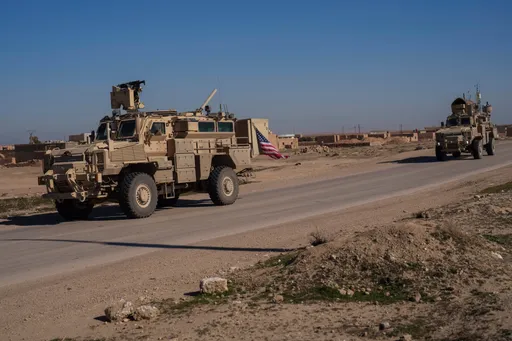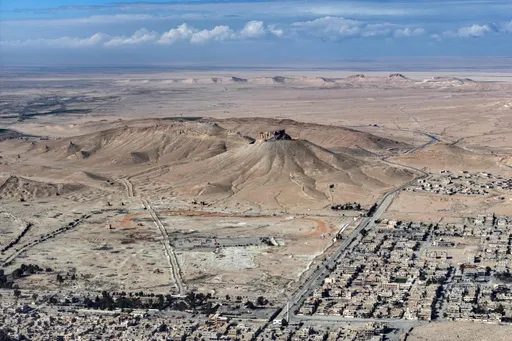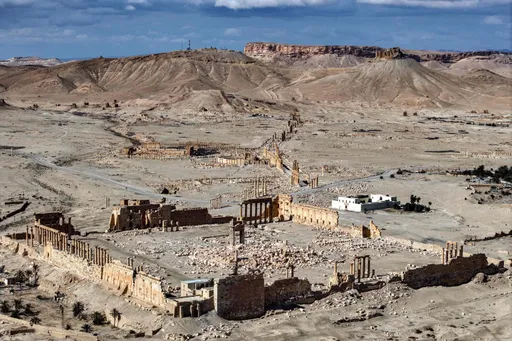Turkey recently grabbed headlines as President Recep Tayyip Erdogan revealed a 10-year space program that would see the country send a Turkish citizen to the moon by 2023.
This landing, part of Turkey’s larger Vision 2023 program to mark the republic’s centennial, is however only the first phase.
The second phase would aim for Turkey to have a soft landing (when a spacecraft lands intact on the surface rather than intentionally crashing or “hard landing”) on the moon in 2028, and would also include a scientific research component.
The announcement comes after years of Turkey building up its space capabilities. President Erdogan mentioned that over the past 18 years, Turkey has invested 2.1 billion Turkish liras (around $300 million) for 56 projects related to satellites, launching systems, and space equipment.
Just last month Turkey, in cooperation with Elon Musk’s Space-X, launched the Turksat 5A satellite with significant communications and defense implications for the region. The satellite is expected to come into operation in the latter half of this year.
These huge expenses might seem hard to justify at first. Why invest all that money to go to space when there’s so much suffering down here? This would seem even more pertinent in a region as conflict-ridden as the Middle East.
However, Turkey’s drive to space is worth it, and could have profound implications not just for itself, but perhaps the entire region.
Technological advancement
One of the first reasons a country should aspire to go to space is the effect it has on spearheading technological advancement.
Firefighting equipment, water filtration, the computer mouse, as well as healthcare advances such as artificial limbs, insulin pumps and LASIK eye surgery are all technologies that were originally innovated or further advanced to meet the challenge of life in space.
This point is an especially relevant one for Turkey due to its focus on not just going to space, but to do so by building up its own indigenous capabilities.
Turkey is not the only Muslim country aiming to go to space. The UAE recently joined the US and China as recent countries with probes sent to Mars with its Amal (Hope) probe. The county even aims to establish a colony on Mars by 2117.
However, Turkey’s space program looks more promising over the long term due not just to its longer past, but also its emphasis on domestic engineering and building up domestic capacity in phases.
Imagining a better future
An even more important reason for a country to go to space is the effect it can have on people’s imaginations.
There’s a reason so many children want to be astronauts when they grow up. There is something intrinsically frontier-breaking about going to space, it opens up children's minds.
Due to its recent history, much of the Muslim world, especially the Middle East, is struck with despondency and defeatism. Many, quite understandably, can’t imagine a better future. Compare this with Americans, who have long been known even among other Western countries for having an annoying degree of optimism.
The example of a Middle Eastern and Muslim country using its own technological and engineering capabilities to go to space should be a sign that the region can hope that with time and effort, things may look very different in the future.
The ability to imagine a better future is crucial to creating a better present.
Today’s geopolitics, tomorrow’s astropolitics?
Turkey’s 10-year space program also includes a regional positioning system, controlled by a combination of satellites and ground systems. President Erdogan noted that by doing so, “Turkey will end its foreign dependency.”
That brings us to the third reason why going to space is important for a country: its potential security implications.
While both the Cold War space race and the current equally-cold US-China space race have mostly been about prestige, industries currently being developed could have massive effects on our future societies.
The first is if commercial space flights become a reality soon, with Morgan Stanley predicting that the space industry could generate more than a trillion dollars of revenue for the US in 2040.
Even more crucial though is space mining.
If the cost of going to space can continue to be reduced, it could one day be feasible to mine the moon or asteroids, which are rich not only in water (which can be used for hydrogen fuel) but also metals, including gold and rare-earth metals. Some asteroids are worth not just millions or billions, but quintillions, a number so large, it is nearly unfathomable.
Whichever countries or corporations arrive there first could utilise that abundance of resources to create industries we can’t even presently imagine.
How does the money and politics work?
Two potential obstacles for the Turkish space program rest in money and politics.
One component of Turkey’s 10-step program is the building of a Turkish spaceport. However, Turkey is too far from the equator to be cost-competitive for launching rockets, meaning it will have to turn to an ally.
It is much cheaper to launch from the equator, due to the Earth’s greater rotational speed there reducing the amount of rocket fuel needed. This effect can be compounded if you launch from an eastern coast, as you gain extra velocity from the Earth’s west-to-east spin. (Hence, why NASA mostly launches from Florida).
The nearest Turkish ally located on an eastern coast near to the equator? Somalia.
Somalia as a close Turkish ally already hosts Turkey’s largest military base outside of the country and the two countries cooperate on a wide range of issues.
Another potential roadblock could be the costs.
A Middle East Eye report quoted the government’s draft calculations for building and maintaining the spaceport in Somalia at more than $350 million, with another $150 million for increasing qualified personnel, including sending doctoral students abroad and increasing funding for Turkish universities.
However, while the politics and money may not be easy, the impacts it could have on Turkey’s technological capabilities, the imagination of its population and the region's, as well as long-term security implications, means that Turkey’s race to space is a potentially game-changing move for Turkey and the wider region.
























